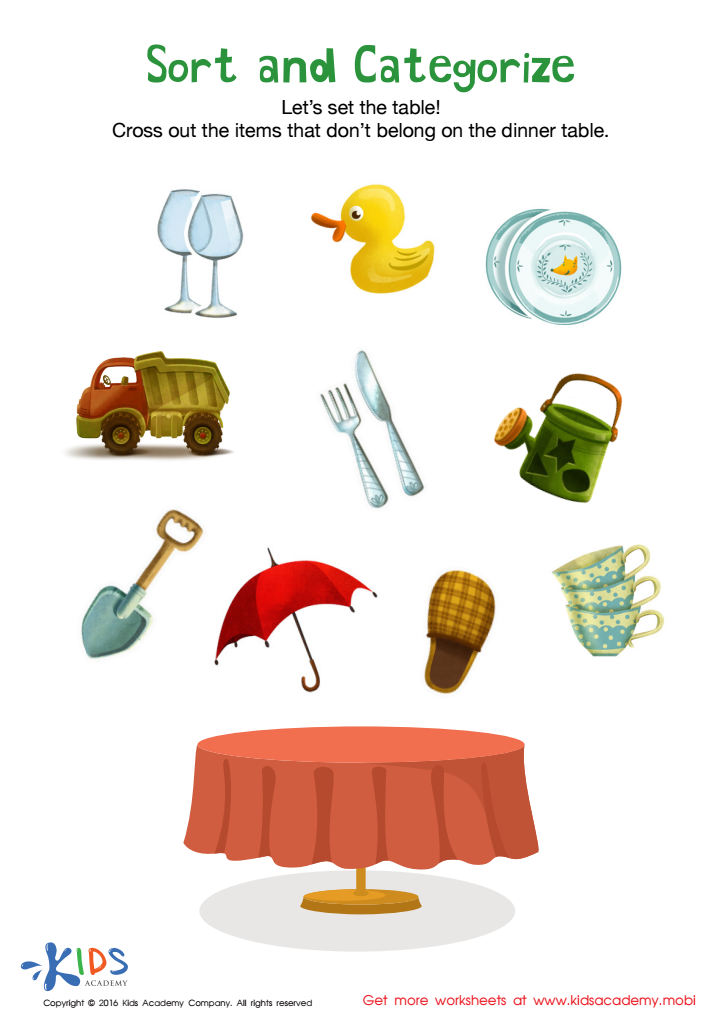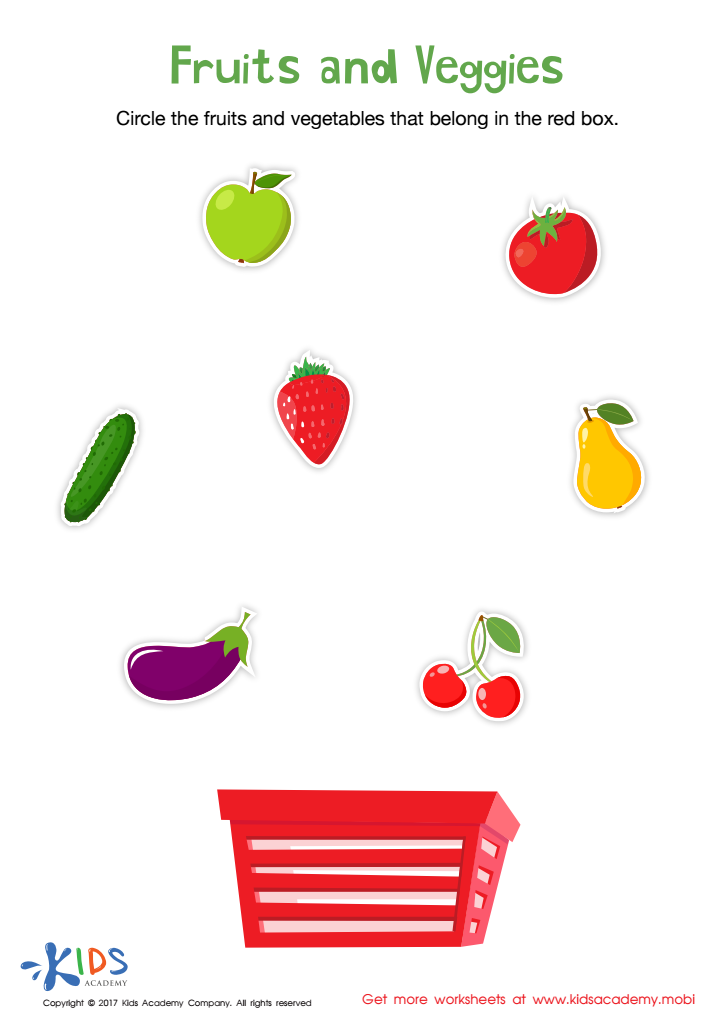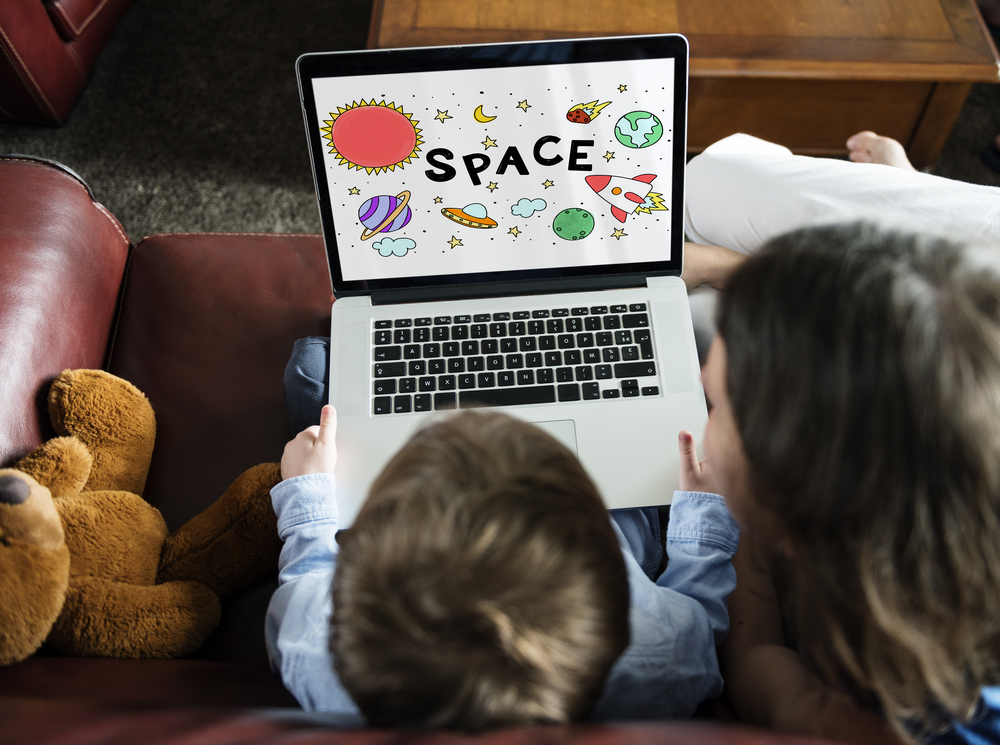Categorization skills Normal Matching Worksheets for Ages 4-5
6 filtered results
-
From - To
Help your child develop essential categorization skills with our Normal Matching Worksheets, designed specifically for ages 4-5! These engaging activities focus on matching similar items to enhance critical thinking and promote learning through play. Ideal for early learners, our worksheets encourage children to group items by color, shape, or size, fostering their ability to identify relationships within different categories. With vibrant illustrations and age-appropriate challenges, these resources provide a fun and interactive way to build foundational skills in math and logic. Explore our collection of worksheets to enrich your child’s learning experience today! Perfect for home or classroom use!
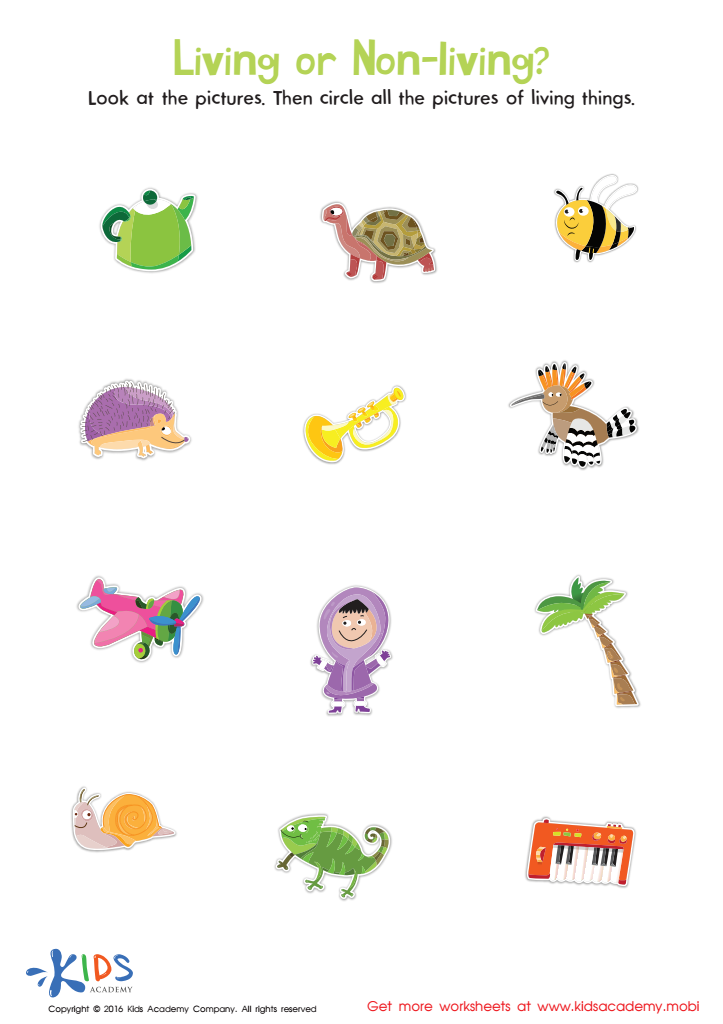

Identifying Living and Non–living Things Sorting Worksheet


Matching: Classifying Toys by Size Worksheet
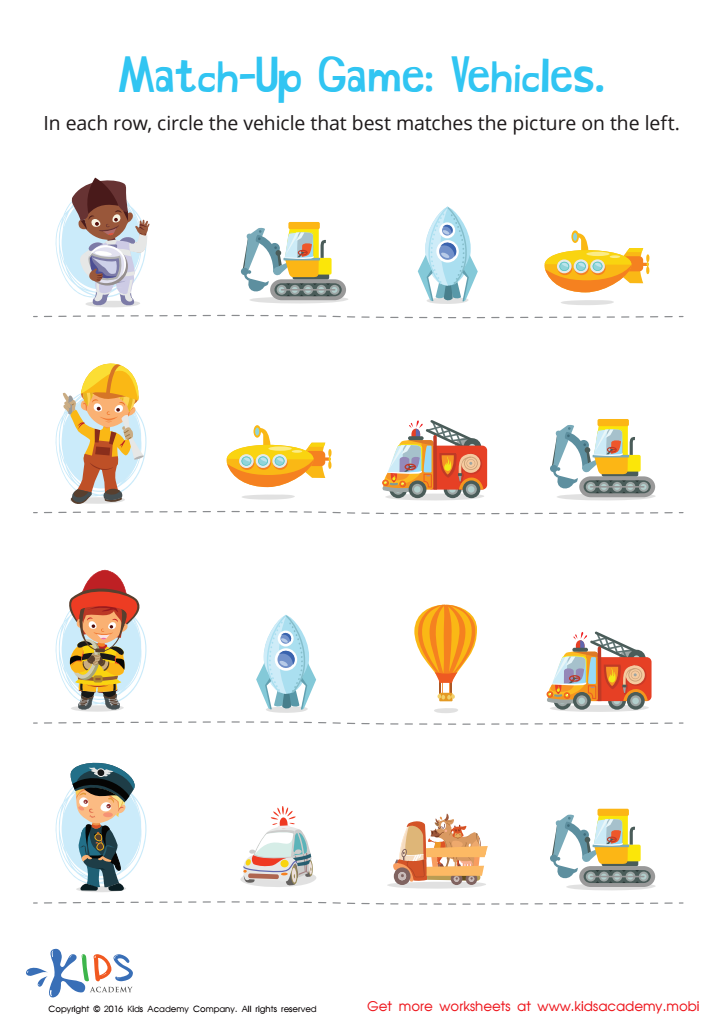

Vehicles Worksheet


Logic Game Sorting Worksheet
Categorization skills, especially normal matching, are crucial for children aged 4-5 as they lay the foundation for complex cognitive abilities. During this developmental stage, children develop the ability to recognize similarities and differences, which is essential for critical thinking and problem-solving. Normal matching involves recognizing items that share specific attributes—such as color, shape, or function—and this skill is fundamental in various learning contexts.
For parents and teachers, fostering these skills can enhance children's language development by expanding their vocabulary through discussions about categories, which deepens their understanding of the world. Moreover, skillful categorization aids in the organization of knowledge, allowing children to make connections between concepts. It boosts their ability to make predictions, a vital aspect of cognitive development.
In social settings, such as group activities, children with well-developed categorization skills can better navigate peer interactions by recognizing roles or similarities among peers, promoting cooperation and teamwork. Overall, by nurturing these skills, parents and teachers empower children to become more critical thinkers and effective communicators, setting the stage for future academic success. Cultivating categorization skills in early childhood is an investment in a child's lifelong learning journey.
 Assign to My Students
Assign to My Students

